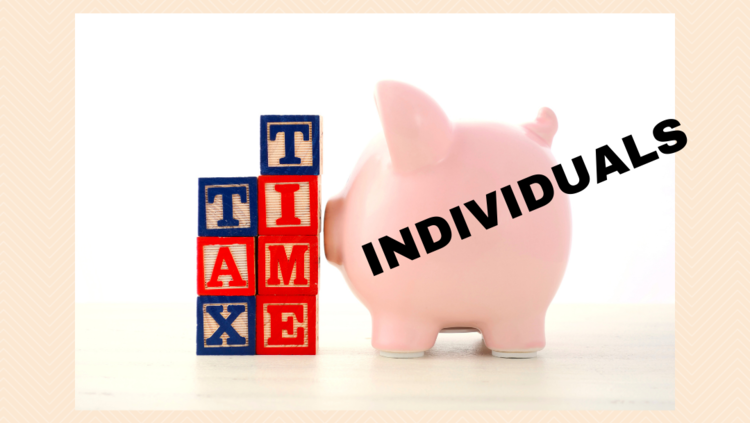My previous article was about tax planning for business. Business is unpredictable and requires planning towards the end of the financial year. For most individual taxpayers, the tax situation is relatively stable from year to year. While there are a few tips to help you get the best return, it is best to be planning for your tax all the time, not just at the end of the year.
The reason I say this is that tax deductions need evidence. Evidence may be in the form of a receipt, a diary entry or a log book. Tax deductions are usually spread throughout the year, not saved until the last few weeks in June despite what the retail advertisers are claim with their End of Financial Year Sales.
Here are my top tips for individuals tax payers, whether it is the end of financial year or not. I will not be discussing rental properties as a tax deduction in this article. This is really based on a simple tax return.
1. Keep your receipts
I can’t tell you how many times I have prepared a tax return and the taxpayer tells me they bought heaps of things for work but didn’t keep the receipts. The ATO are very clear on this – no evidence, no deduction. I strongly urge you to download the ATO app on your phone so you can take photos of your work-related receipts to keep track of them.
If you want to claim motor vehicle expenses make sure you are recording your work related trips, or better still, keep a log book.
2. Understand what you can claim
I hate quoting tax legislation but the laws that allows you to claim tax deductions is simple.
8-1(1)
You can deduct from your assessable income any loss or outgoing to the extent that:
(a) it is incurred in gaining or producing your assessable income; or
(b) it is necessarily incurred in carrying on a * business for the purpose of gaining or producing your assessable income.
Section 8-1, Income Tax Assessment Act 1997.
It then goes on to say that you cannot claim an outgoing to the extent that is of a private or domestic nature.
Basically, the deduction must have some connection with the income you are earning. If it is partly private it should be proportioned as such, or is not claimable at all. The ATO give very good guidance on most types of deductions. I suggest you look at the Occupation and Industry Specific Guides for your profession at the link below.
https://www.ato.gov.au/Individuals/Income-and-deductions/Occupation-and-industry-specific-guides/
While you may be able to loosely connect an expense to your income, remember that the ATO are not stupid. Is it really worth claiming something you are not entitled to claim and risk getting caught?
3. Understand when items need to be depreciated
There has been a lot of talk lately about the full expensing of capital assets, but this is only available to business owners. As a wage or salary earner, or if you are purchasing assets for your rental property, the rules are quite different. You can only write off an asset in full if it costs less than $300.
This means that going out and buying an expensive asset on 30 June will not give you the great tax deduction you are expecting. Your claim will be made over a number of years depending on the effective life of the asset you have purchased.
4. Spend some money
Now that you know what is deductible, it may be worth bringing forward some minor expenditure to claim the tax deduction this year.
5. Be generous
There are a number of charities out there who would love you to give them a donation. If you are making a donation make sure you get a receipt, and make sure they have DGR (deductible gift recipient) status. Without this, you cannot claim the deduction. You also cannot claim a donation if you get something for it, such as a raffle ticket, a badge or a teddy bear.
6. Make a personal contribution to superannuation
There is a threshold on the concessional contributions you are making into super each year. Concessional contributions means that someone is claiming a tax deduction for them (or could be if they were paid on time). Most of the time the tax deduction is being claimed by your employer as part of your Superannuation Guarantee. However you can personally top up your superannuation to the threshold ($25,000 in the 2020-21 year).
Additional personal concessional contributions are tax deductible and one of the most effective ways to save tax at the moment. Check with your employer or on your My.Gov account to see how much super has been paid this year. You may also be able to access some carried forward unused caps from the previous 3 year. To find out more read the link below to the ATO information about this.
7. Working from home
Many of us have spent part of the year working from home due to COVID-19. If you want to claim home office expenses you have a few options. The options really depend on whether you have a dedicated home office room in your house.
If you do, you can claim usage of that room at 52 cents per hour. You can also claim for office expenses such as part of your internet, printing and stationery and the depreciation of your office equipment and furniture.
If you don’t have a dedicated space (perhaps you are sitting at your kitchen table to work) you can use the rate of 80 cents per hour. That covers everything – internet, printing and stationery and depreciation.
Make sure you have some record to show how you calculated the hours you worked from home to support your claim.
The ATO will expect to see a change in the deductions claimed for those who have been working differently due to COVID-19. If you have been working from home you probably travelled less and you may need to have a new log book. Think about how COVID-19 may have changed what you can claim this year.
8. Prepay expenses
An individual can claim a deduction for expenses it prepays so long as that expense will be used in the next 12 months. There may be some upcoming expenses that you can pay prior to 30 June to get a tax deduction this year.
My final tip is to not try to lodge your return too early. The ATO have an incredible amount of data being fed into their systems so your return can be accurately prefilled with information on wages, interest and dividend income, private health insurance and a host of other items. This information is not there on 1 July. The ATO suggest you hold off lodging until the end of July to make sure the prefill information is accurate.
Once again we anticipate increased audit activity from the ATO. Stick within the rules and make sure you have evidence about any claims you are making.
Happy Tax Time.



